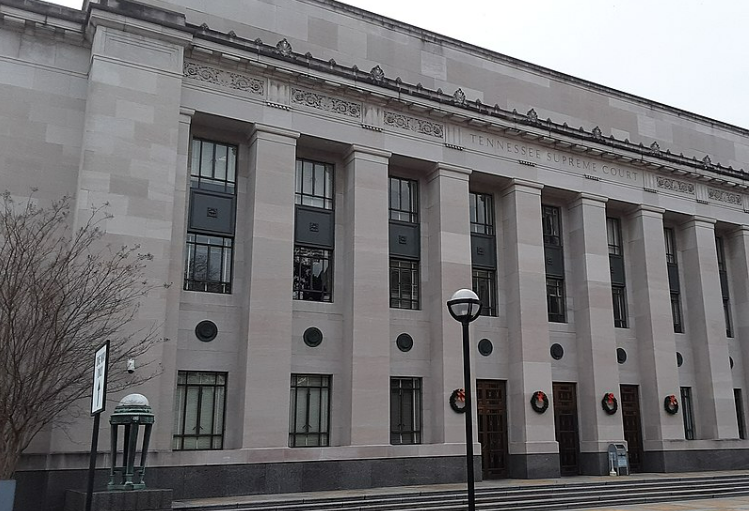
Editor’s note: This news release was issued earlier today by the state of Tennessee courts system.
In an opinion released today, the Tennessee Supreme Court determined that, while two Tennessee county governments had standing to challenge the Education Savings Account Pilot Program (the “ESA Act”), the Act is not rendered unconstitutional by the Home Rule Amendment, article XI, section 9, of the Tennessee Constitution.
In 2019, the Tennessee General Assembly enacted ESA Act. The Act establishes a program allowing a limited number of eligible students to directly receive their share of state and local education funds, which would ordinarily be provided to the public school system they attend, to pay for a private school education and associated expenses.
The Metropolitan Government of Nashville and Davidson County, Shelby County Government, and Metropolitan Nashville Board of Public Education filed a declaratory judgment action that named as defendants Governor Bill Lee, the Tennessee Department of Education Commissioner, and the Tennessee Department of Education.
The trial court also allowed additional parties to intervene and participate as defendants. The complaint alleged that the ESA Act violates several provisions of the Tennessee Constitution, including the Home Rule Amendment, the equal protection clauses, and the education clause.
Defendants filed separate motions challenging Plaintiffs’ standing to pursue the claims presented and the legal sufficiency of those claims. Plaintiffs, in turn, filed a motion for summary judgment with respect to their Home Rule Amendment claim. The trial court determined that the two county plaintiffs had standing to pursue the claims, but it dismissed the Metro School Board as a plaintiff for lack of standing.
The trial court also granted the motion for summary judgment concluding that the ESA Act violates the Home Rule Amendment and enjoined the State from implementing the Act. The trial court reserved ruling on Defendants’ challenges to the equal protection and education clause claims.
The trial court granted Defendants permission to seek an interlocutory appeal, and the Court of Appeals granted Defendants’ applications for appeal. The intermediate appellate court affirmed the trial court, holding that Metro and Shelby County had standing to challenge the ESA Act under the Home Rule Amendment and that the Act was unconstitutional pursuant to the Home Rule Amendment.
The Tennessee Supreme Court granted Defendants’ applications for permission to appeal. Because it is an interlocutory appeal, the issues before the Court were limited to the constitutionality of the ESA Act under the Home Rule Amendment and Plaintiffs’ standing to bring that challenge. The Supreme Court agreed with both the trial court and the Court of Appeals that Plaintiffs Metro and Shelby County had standing to bring their Home Rule Amendment Claim.
However, the Supreme Court, after reviewing the applicable constitutional language, held that the ESA Act is not rendered unconstitutional by the Home Rule Amendment because the Act is not “applicable to” the Plaintiff counties for purposes of the Amendment. The majority concluded that the ESA Act is not applicable to the Plaintiff counties because the Act regulates or governs the conduct of the local education agencies and not the counties. Thus, the Act does not violate the Home Rule Amendment. The Supreme Court therefore affirmed, in part, and reversed, in part, the judgment of the Court of Appeals and remanded the case to the trial court for the dismissal of the Home Rule Amendment claim and for consideration of Plaintiffs’ remaining claims.
Justice Sharon G. Lee and Justice Holly Kirby joined in a separate opinion, concurring in part and dissenting in part. They agreed with the Court that Metro and Shelby County had standing to challenge the ESA Act but concluded that the Act violates the Home Rule Amendment. In their view, the ESA Act substantially affects Metro and Shelby County’s ability to self-govern and decide school funding issues.
Under the ESA Act, only Metro and Shelby County and no other counties in the state must pay for students who leave public schools and use their vouchers for private school tuition. Because the ESA Act is local in effect and application, and because the Act gives Metro and Shelby County no choice in the matter, it violates the Home Rule Amendment.
To read the majority opinion in Metropolitan Government of Nashville and Davidson County, et al. v. Tennessee Department of Education, et al., authored by Chief Justice Roger A. Page, and the separate opinion authored by Justice Sharon G. Lee, visit the opinions section of TNCourts.gov.


